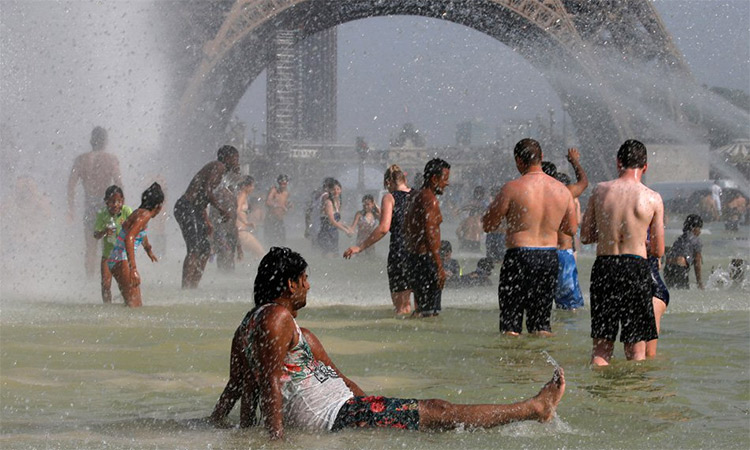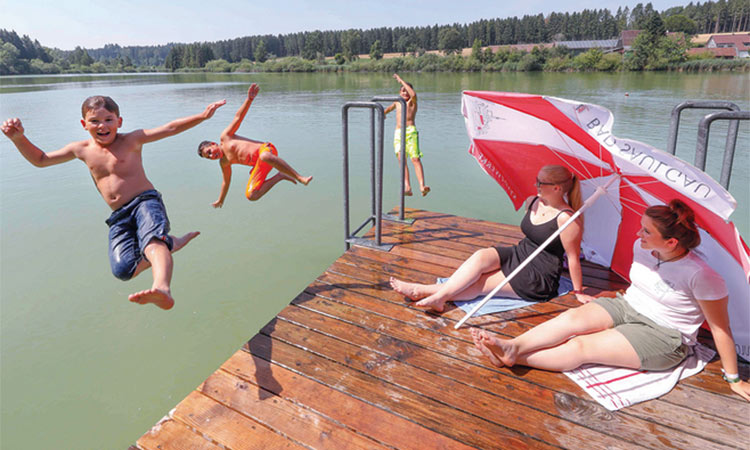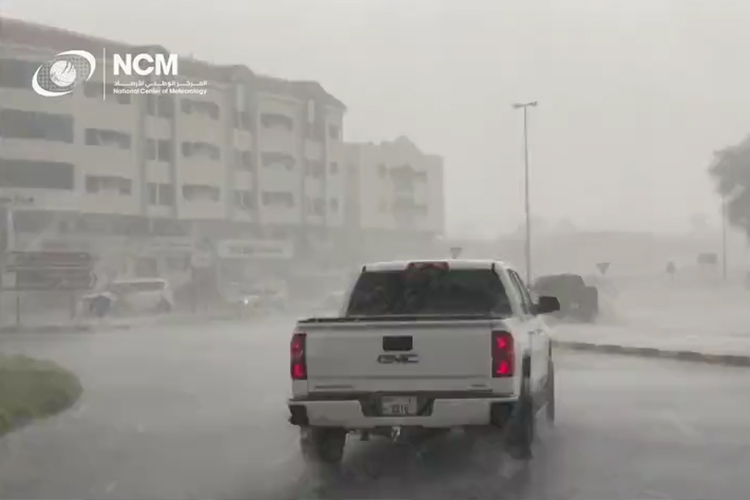France sizzles to 45°C as heatwave kills 2 in Spain

Residents cool themselves in the Trocadero Fountain near the Eiffel Tower in Paris on Friday. Agence France-Presse
With France, Spain, Italy and parts of central Europe particularly badly hit by the high temperatures, officials pleaded with people to take common sense precautions.
At least two deaths linked to the heatwave were reported in Spain.
France›s new record temperature of 45.1°C was registered in Villevieille, a village in the southern department of Gard near Montpellier, the same area where a previous high of 44.1°C was set in August 2003, Meteo-France said.
Records began at the turn of the 20th century.
The state forecaster said it was likely the record could be beaten again on Friday as it was still relatively early in the day.
Earlier the mercury rose above 44°C in the southeastern town of Carpentras.
The town was deserted, with cafe owners contemplating empty terraces, which would normally be packed.
“We have never seen this!” one exclaimed.
The new record makes France just the seventh European country to have recorded a plus 45°C temperature, along with Bulgaria, Portugal, Italy, Spain, Greece and North Macedonia, Meteo France said.
After feeling dizzy while helping harvest wheat in the southern Andalusia region, a Spanish teenager collapsed with convulsions when he took a dip in a swimming pool to cool off.
He was rushed to hospital in the town of Cordoba where he later died, the regional government said.
Elsewhere in Spain, a 93-year-old man collapsed and died on the street in the northern city of Valladolid, police said, giving heatstroke as the cause of death.
Heat-related deaths have also been reported in Italy, France and Germany, mainly among the elderly.
France remains haunted by the memory of the devastating heatwave of August 2003 which exposed the shortcomings of emergency services at the height of the summer holidays.
That year, nearly 15,000 people are estimated to have died because of the heat, many of them elderly people at home.
“I want to appeal to the sense of responsibility of citizens -- there are avoidable deaths in every heatwave,” said French Prime Minister Edouard Philippe.
In Montpellier, 81-year-old Suzette Allegre was up early to do her shopping.
By 8:00am, “the sun is already burning hot and you can smell the pollution,” she said, saying she was rushing home to barricade herself indoors.
The area surrounding Montpellier and the nearby city of Nimes -- where the 2003 record was set -- was placed on the highest alert level Friday, as were Marseille and Avignon.
Most school outings were called off in the four areas and all sports classes cancelled.
In Spain, firefighters were continuing to battle a large forest fire in the northeastern Catalonia region.
Catalonia›s forest service said the fire likely began when an “improperly managed” pile of manure at a chicken farm spontaneously combusted in the extreme heat.
Hundreds of firefighters backed by troops and aerial water bombers were trying to bring it under control.
They were hampered by roasting 44°C temperatures and very low humidity according to David Borrell, head of the Catalan fire department.
Spain›s north-east was on red heatwave alert denoting “extreme risk.”
The stifling temperatures have caused air quality to nosedive in some European cities, prompting local authorities to take anti-pollution measures.
In Paris, Lyon and Marseille, authorities have banned the most polluting cars from the roads in recent days.
Scientists warn that global warming linked to human fossil fuel use could make such scorchers more frequent.
French Health Minister Agnes Buzyn warned those tempted to plunge into cold water, both young and old, to do so only in designated public bathing areas, adding that four people had drowned since the beginning of the week.
Agence France-Presse







